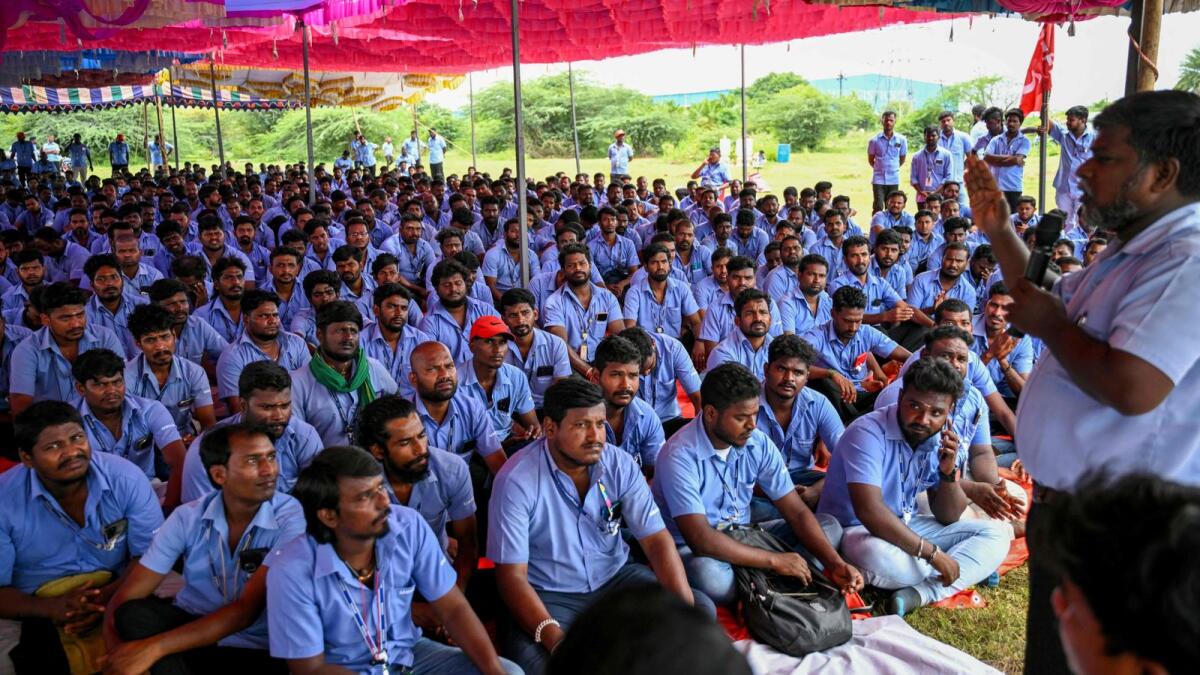Samsung Electronics’ plant in southern India is currently facing a strike as workers demand better wages and working conditions. This strike has disrupted output at the consumer appliances unit for three consecutive days in Sriperumbudur, near Chennai. The plant is known for producing televisions, refrigerators, and washing machines, contributing significantly to Samsung’s annual revenue in India.
The workers have vowed to continue the strike until their demands are met, with negotiations planned for Friday evening. The strike involves the recognition of their union, salary increases, and improved working hours. The presence of other global giants such as Foxconn and Dell in the same area makes this industrial unrest significant in India.
Despite initial disruptions in production, some temporary workers have been brought in to keep operations running. Samsung’s senior executives are making efforts to resolve the situation, but the workers are determined to stand their ground until their demands are addressed. The workers’ union has drawn parallels to a previous strike in South Korea, underscoring the importance of their demands to Samsung.
As the strike takes place during a crucial festive season in India, Samsung’s response remains a key point of interest. The company has yet to recognize the union backed by the local labor group, indicating a potential standoff. The workers, identifiable by their Samsung uniforms and CITU caps, continue to demonstrate their unity and determination through various activities outside the factory.
Despite the strike at the southern India plant, Samsung’s other facility in Uttar Pradesh, which produces smartphones, remains unaffected by labor unrest. The continuation of the strike underscores the workers’ commitment to their cause, as they await a resolution that meets their demands. The situation sheds light on the broader labor issues in India’s manufacturing sector and the significance of worker rights in the industry.
In conclusion, the strike at Samsung’s plant in southern India reflects the ongoing struggle for better working conditions and wages among factory workers. The solidarity displayed by the workers underscores their determination to have their demands recognized by the company. As negotiations continue, the outcome of the strike will have implications not only for Samsung but also for the broader context of labor rights and worker welfare in India’s manufacturing sector.































